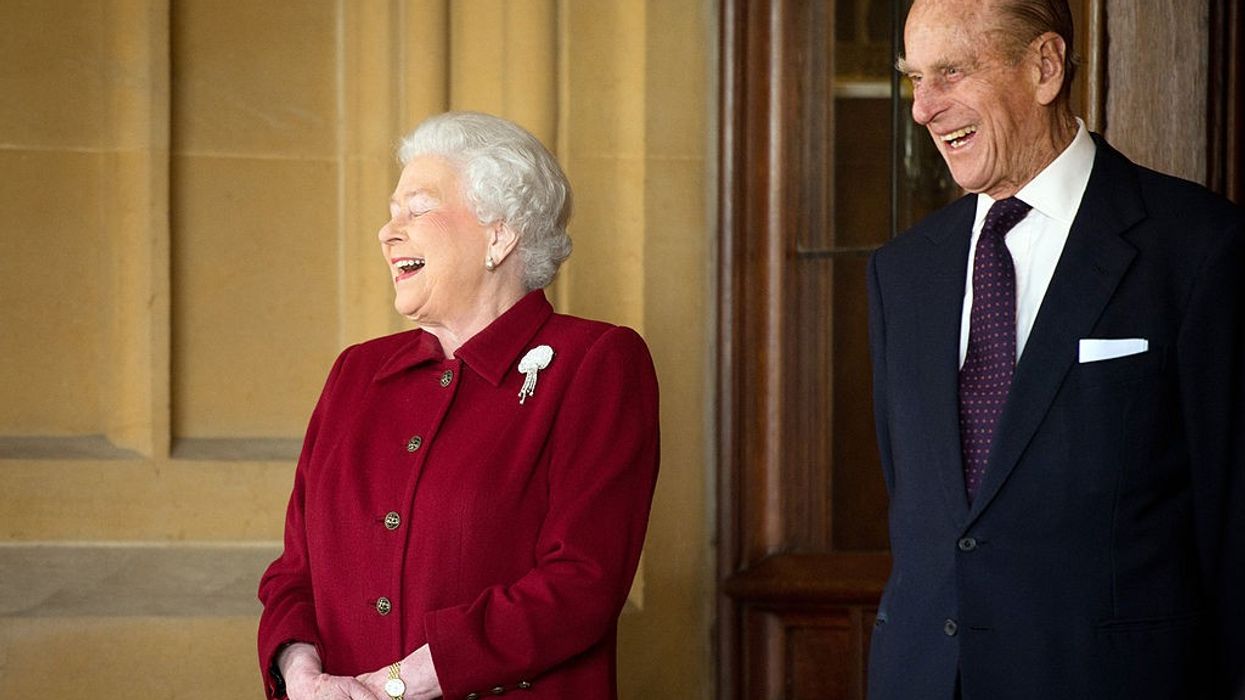THE QUEEN bids a final farewell to her late husband, Prince Philip, on Saturday (17), at a funeral restricted by coronavirus rules but reflecting his long life of military and public service.
The ceremony from behind the stately walls of Windsor Castle, west of London, will be watched by an expected television audience of millions, with the public urged to stay away because of the global pandemic.
The Duke of Edinburgh -- described by royals as "the grandfather of the nation" -- died on April 9, aged 99, just weeks after spending more than a month in hospital for treatment of a heart condition and an infection.
Britain's longest-serving royal consort was an almost constant presence at the Queen's side during her record-breaking reign that began in 1952, as Britain rebuilt from World War II and as its global empire began to unravel.
His death, after 73 years of marriage, has left a "huge void" in her life, the couple's second son, Prince Andrew, said last weekend.
At the service, the Dean of Windsor, David Conner, will pay tribute to Philip's "unwavering loyalty" to the Queen, who turns 95 next week, the country and the Commonwealth, as well as his "courage, fortitude and faith".
Government coronavirus regulations have forced hasty revisions to "Operation Forth Bridge", the long-rehearsed funeral plans for former Royal Navy commander Philip.
But the stripped-back ceremonial funeral will still feature members of the armed services he was associated with lining a short procession route through the immaculately trimmed grounds of the castle, whose history dates back 1,000 years.
His coffin will be borne to Windsor's historic St George's Chapel on a bespoke Land Rover hearse which he designed himself, repainted in military green.
A minute's silence will be observed across the country on the stroke of 3:00 pm (1400 GMT) before the funeral service begins.
End of an era
The Queen will lead just 30 mourners, as they pay their respects to the man she once called her "strength and stay", and whose death closes a remarkable chapter for Britain's most famous family and the country's recent history.
The congregation will mostly be close family, including the couple's four children: heir to the throne Prince Charles, 72, Princess Anne, 70, Prince Andrew, 61, and Prince Edward, 57.
Also present will be Charles' eldest son William, 38, who will be joined by younger brother, Harry, 36, after he jetted back last weekend from the United States, where he now lives.
All eyes will be on the brothers -- whose mother was Charles' first wife, princess Diana -- after a reported falling out over Harry's move to California with his American wife, Meghan, and their stinging criticisms of the royals.
Meghan, heavily pregnant with her second child, was advised not to travel on medical grounds.
The brothers, who as young boys walked behind their mother's coffin at her funeral in 1997, will follow the procession on foot, but not side-by-side.
Between them will be their cousin, Princess Anne's son Peter Phillips, 43, which will likely fuel further rumours of the rift, even if it reflects royal protocol.
Masks and social distancing
Funerals of senior royals are normally grand public affairs, honed over years of planning, combining pomp, pageantry, and a guest list that is a who's who of world dignitaries.
The last major royal funeral -- of the Queen's mother, also called Queen Elizabeth -- in 2002 cost more than £5.4 million ($7.4m).
More than one million people thronged outside Westminster Abbey in central London to watch the sombre pageant.
More than 200,000 people had previously filed past her coffin, as it lay in state over four days.
Saturday's ceremony will be a more modest affair but a royal send-off like no other, with two-metre social distancing in place inside the 15th century Gothic chapel.
All guests -- in mourning black -- are required to wear black face masks before, during and after the ceremony. Harry has had to quarantine since arriving from Los Angeles.
Royal officials and the government have urged the public not to congregate at palaces to pay their respects, although a steady stream of well-wishers have ignored the calls.
The slimmed-down formalities, however, may have appealed to the straight-talking prince, who had an aversion to "fuss", according to his family.
At the end of the funeral, led by the Dean of Windsor with the Archbishop of Canterbury, Justin Welby, the duke will be privately interred in the Royal Vault of St George's Chapel.
When the Queen dies, he will be transferred to lie alongside her in the King George VI memorial chapel, which houses the remains of her father, George VI, her mother, and the ashes of her younger sister, Princess Margaret.





